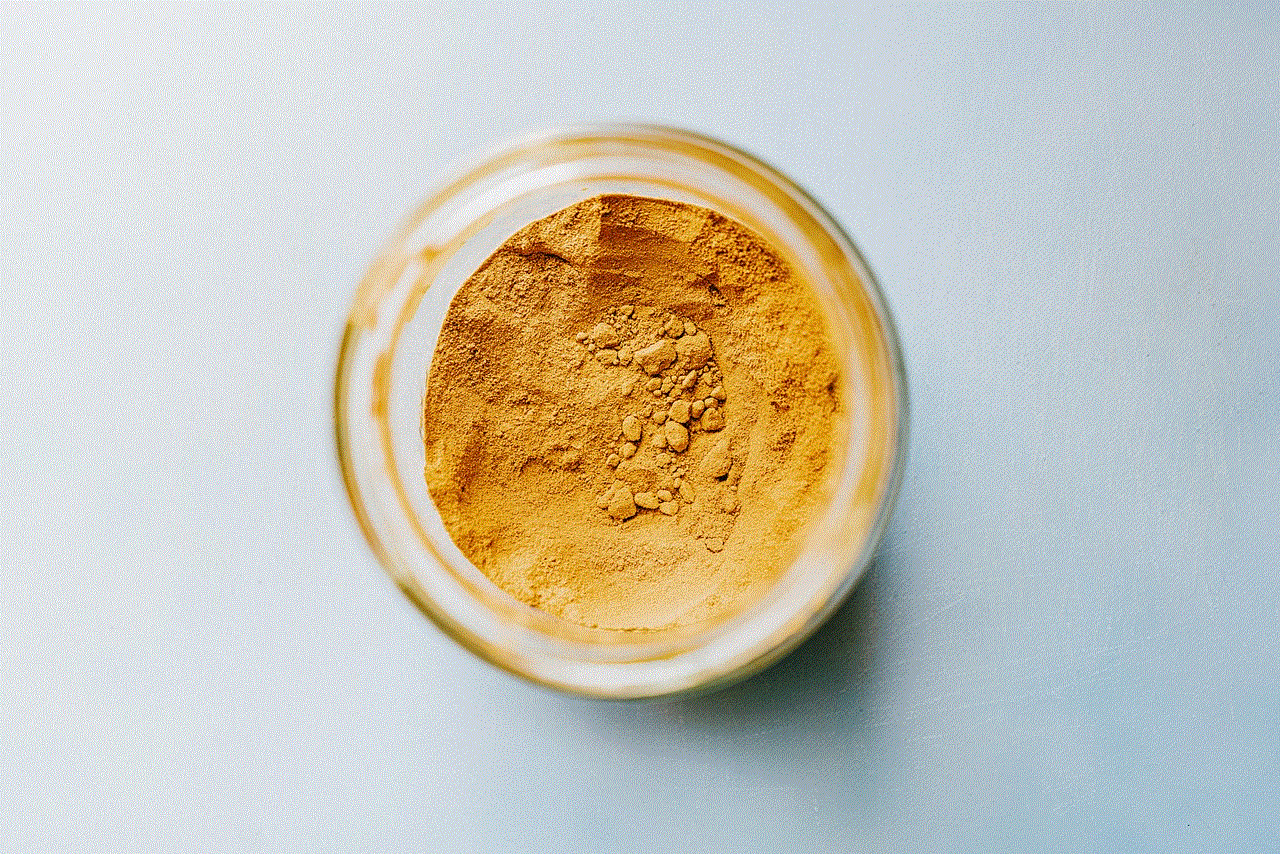how to delete chats on messenger
With the increasing popularity and widespread use of social media, messaging apps have become an essential part of our daily communication. One such messaging app that has gained immense popularity is facebook -parental-controls-guide”>Facebook Messenger. This app allows users to send and receive messages, make audio and video calls, and share media files with their friends and family. However, with the constant influx of messages, it can become overwhelming to manage and organize them, leading to the need to delete chats on Messenger. In this article, we will discuss the various methods and steps to delete chats on Messenger and declutter your inbox.
Why Delete Chats on Messenger?
Before we dive into the steps to delete chats on Messenger, let’s understand the reasons why you may want to do so. The most common reason is to declutter your inbox. With the constant bombardment of messages, it can be challenging to keep track of important conversations. Deleting unnecessary chats can help you focus on the essential ones and declutter your inbox. Moreover, deleting chats can also free up storage space on your device, especially if you have limited storage capacity.
Another reason to delete chats on Messenger is for privacy concerns. In this digital age, privacy has become a major concern for many individuals. You may want to delete chats that contain sensitive information or personal conversations that you don’t want anyone else to see. By deleting these chats, you can ensure your privacy and prevent any potential leaks or breaches.
Methods to Delete Chats on Messenger
There are multiple ways to delete chats on Messenger, depending on the device you are using. Let’s take a look at the various methods to delete chats on Messenger.
1. Deleting Chats on Desktop
If you are using Messenger on your desktop, follow these simple steps to delete chats:
Step 1: Open the Messenger website on your desktop browser and log in to your account.
Step 2: On the left side of the screen, you will see a list of all your conversations. Right-click on the chat you want to delete.
Step 3: A drop-down menu will appear. Click on the “Delete” option.
Step 4: A confirmation pop-up will appear. Click on “Delete” again to confirm.
Your chat will now be deleted from Messenger.
2. Deleting Chats on Mobile Devices
If you are using Messenger on your mobile device, follow these steps to delete chats:
Step 1: Open the Messenger app on your mobile device.
Step 2: On the home screen, you will see a list of all your conversations. Tap and hold on the chat you want to delete.
Step 3: A pop-up menu will appear. Tap on the “Delete” option.
Step 4: A confirmation pop-up will appear. Tap on “Delete” again to confirm.
Your chat will now be deleted from Messenger.
3. Deleting Multiple Chats on Mobile Devices
If you want to delete multiple chats at once on your mobile device, follow these steps:
Step 1: Open the Messenger app on your mobile device.
Step 2: On the home screen, tap on the three horizontal lines in the bottom right corner.
Step 3: From the menu, tap on “Edit” in the top right corner.
Step 4: Select the chats you want to delete by tapping on the circle next to each chat.
Step 5: Once you have selected all the chats you want to delete, tap on the trash can icon in the bottom right corner.
Step 6: A confirmation pop-up will appear. Tap on “Delete” to confirm.
All the selected chats will now be deleted from Messenger.
4. Deleting Chats on iOS Devices
If you are using Messenger on an iOS device, follow these steps to delete chats:
Step 1: Open the Messenger app on your iOS device.
Step 2: On the home screen, swipe left on the chat you want to delete.
Step 3: A “Delete” option will appear. Tap on it.
Step 4: A confirmation pop-up will appear. Tap on “Delete” again to confirm.
Your chat will now be deleted from Messenger.
5. Deleting Chats on Android Devices
If you are using Messenger on an Android device, follow these steps to delete chats:
Step 1: Open the Messenger app on your Android device.
Step 2: On the home screen, press and hold on the chat you want to delete.
Step 3: A pop-up menu will appear. Tap on “Delete.”
Step 4: A confirmation pop-up will appear. Tap on “Delete” again to confirm.
Your chat will now be deleted from Messenger.
6. Deleting Chats on Facebook



If you have connected your Messenger account with your Facebook account, you can also delete chats from Facebook. Follow these steps to do so:
Step 1: Log in to your Facebook account on your desktop browser.
Step 2: Click on the Messenger icon in the top right corner of the screen.
Step 3: A list of your conversations will appear. Click on the chat you want to delete.
Step 4: In the chat window, click on the gear icon in the top right corner.
Step 5: From the drop-down menu, click on “Delete.”
Step 6: A confirmation pop-up will appear. Click on “Delete” again to confirm.
Your chat will now be deleted from both Messenger and Facebook.
7. Deleting All Chats
If you want to delete all your chats on Messenger, there is no direct option to do so. However, you can achieve this by following these steps:
Step 1: Open the Messenger app on your mobile device.
Step 2: On the home screen, tap on your profile picture in the top left corner.
Step 3: From the menu, tap on “Privacy.”
Step 4: Scroll down and tap on “Clear All Chats.”
Step 5: A confirmation pop-up will appear. Tap on “Clear All Chats” again to confirm.
All your chats will now be deleted from Messenger.
8. Archiving Chats
If you don’t want to delete your chats permanently, you can choose to archive them. Archiving a chat will remove it from your inbox, but it will be saved in the “Archived Chats” section. To archive a chat, follow these steps:
Step 1: Open the Messenger app on your mobile device.
Step 2: On the home screen, swipe left on the chat you want to archive.
Step 3: Tap on the “Archive” option.
Your chat will now be archived and removed from your inbox.



In conclusion, deleting chats on Messenger is a simple process that can help you declutter your inbox, free up storage space, and ensure your privacy. With the various methods discussed in this article, you can easily delete chats on Messenger from your desktop or mobile device. Additionally, you can also choose to archive chats instead of deleting them permanently. Now that you know how to delete chats on Messenger, go ahead and declutter your inbox for a stress-free messaging experience.
recent phone calls
In today’s fast-paced world, we rely heavily on our phones for communication. It’s no surprise that one of the most commonly used features on our devices is the call function. With just a few taps, we can connect with anyone, anywhere in the world. However, as convenient as it may be, there is much more to phone calls than meets the eye. From personal to business use, phone calls have been an integral part of our lives for decades. In this article, we will explore the evolution of phone calls, their significance, and how they have shaped our communication habits.
The first phone call was made on March 10, 1876, by Alexander Graham Bell to his assistant, Thomas Watson. He famously said, “Mr. Watson, come here. I want to see you.” This historic moment marked the beginning of a new era in communication. The early days of phone calls were limited to landlines, and making a call required the assistance of an operator. However, with the introduction of mobile phones in the 1980s, the concept of phone calls took a whole new dimension. Suddenly, people could make calls from anywhere, at any time, without the need for a landline.
As technology continued to advance, phone calls became more sophisticated. The introduction of smartphones in the early 2000s revolutionized the way we communicate. With the rise of internet connectivity, communication through phone calls became more accessible and affordable. Apps like Skype, WhatsApp, and FaceTime allowed us to make calls to anyone in the world for free or at a minimal cost. This opened up a whole new world of possibilities, making international calls as easy as making a local call.
The uses of phone calls are endless, and they have played a significant role in shaping our personal relationships. In the past, long-distance relationships were challenging to maintain due to the high cost of phone calls. However, with the introduction of internet-based calling, couples can now stay connected with their loved ones, no matter where they are in the world. Phone calls have also become an essential tool for maintaining friendships, with people often catching up with each other through a quick phone call.
Aside from personal use, phone calls have also been a crucial aspect of business communication. Before the internet, phone calls were the primary means of communication for businesses. Companies would use landlines to connect with their clients, suppliers, and employees. This involved a lot of coordination and organization, with calls being made to set up meetings, follow up on orders, and make important business decisions. Today, businesses have expanded their communication channels to include emails, video conferences, and instant messaging. However, phone calls still play a vital role in maintaining business relationships, especially when a more personal touch is needed.
One significant impact of phone calls on businesses is the rise of call centers. With the increase in customer demands and competition, companies have set up call centers to handle customer inquiries, complaints, and support services. Call centers have become an essential part of many industries, including healthcare, finance, and retail. They not only provide customer service but also serve as a marketing tool, with companies using phone calls to upsell products and services to their clients.
The use of phone calls has also evolved in the education sector. In the past, students and teachers were limited to classroom discussions and meetings. However, with the introduction of online learning, phone calls have become a crucial tool for distance education. Students can now attend virtual classes and communicate with their teachers through phone calls. This has made education more accessible and has provided a platform for students from all over the world to learn from each other.
Phone calls have also played a crucial role in emergency situations. In times of crisis, such as natural disasters or accidents, phone calls have been a lifeline for many. They have provided a means of communication for people to call for help and for authorities to coordinate rescue efforts. During the COVID-19 pandemic, phone calls have been vital in keeping people connected and informed, especially for those in isolation or quarantine. They have also been used for contact tracing and providing support to those in need.
Despite the many benefits of phone calls, there have also been some negative impacts. With the ease of making phone calls, people have become overly reliant on them for communication. This has led to a decrease in face-to-face interactions, which are crucial for building and maintaining relationships. The constant ringing of phones has also caused distractions and interruptions in daily activities, leading to a decrease in productivity.
Moreover, phone calls have also been used for malicious purposes, such as prank calls, frauds, and scams. This has led to the implementation of laws and regulations to protect individuals from these forms of harassment. In some countries, individuals are required to register their phone numbers to prevent unsolicited calls from telemarketers and scammers.
In conclusion, phone calls have come a long way since their inception in 1876. From landlines to smartphones and internet-based calling, they have evolved to become an integral part of our lives. They have revolutionized the way we communicate and have made the world a smaller place. Whether it’s for personal or business use, phone calls have played a significant role in maintaining relationships and connecting people. As technology continues to advance, it will be interesting to see how phone calls will continue to shape our communication habits in the future.
who views my facebook profile
Facebook has become one of the most popular and widely used social media platforms in the world. With over 2.7 billion monthly active users, it has revolutionized the way people connect and communicate with each other. However, with the rise of social media, a new question has emerged – who views my Facebook profile? This question has piqued the curiosity of many users, and has led to numerous articles, discussions, and even apps claiming to provide the answer. In this article, we will delve deeper into this question and explore the truth behind it.
To begin with, it is important to understand that Facebook does not provide an official way for users to see who has viewed their profile. This is because Facebook values the privacy of its users and does not want to compromise it by allowing anyone to see their profile visitors. Therefore, any app or website claiming to provide this information is not endorsed by Facebook and should be approached with caution.
However, this does not mean that it is impossible to know who has viewed your Facebook profile. There are some indirect ways to get an idea of who has been checking out your profile. One of the ways is by using third-party apps. These apps claim to analyze your profile and provide a list of people who have recently viewed it. They often require you to grant access to your profile and friends list, which can be a potential security risk. Moreover, these apps use algorithms and data from your profile to make assumptions about your profile visitors, so their accuracy is questionable.
Another way to get an idea of who has viewed your profile is by looking at the list of people who have recently interacted with your posts and photos. Facebook’s algorithm prioritizes the posts and photos of people you have recently interacted with, so if someone has been viewing your profile, they are likely to show up on this list. However, keep in mind that this list is not a definitive list of your profile visitors, as it only shows people who have interacted with your content, not necessarily those who have viewed your profile.
Similarly, you can also check the list of people who have recently added you as a friend. If someone has recently sent you a friend request, it is safe to assume that they have viewed your profile before sending the request. Again, this is not a foolproof method as some people may add you as a friend without viewing your profile first, but it can give you an idea of who has been checking you out on Facebook.
Apart from these indirect methods, there are also some myths and rumors surrounding the question of who views my Facebook profile. One of the most popular ones is the “View Page Source” method. According to this myth, if you right-click on your Facebook profile and select “View Page Source”, you can see a list of IDs of people who have viewed your profile. However, this is not true. The IDs shown in the page source are not of your profile visitors, but of the elements on the page, such as ads, images, and buttons.
Similarly, there are also various Facebook groups and pages claiming to provide a list of your profile visitors. These groups and pages often ask you to like, share, and comment on their posts to get access to the list. However, these are just clickbait tactics to gain more engagement on their posts and do not provide any valuable information about your profile visitors.
Now, you may be wondering why there is such a fascination with knowing who has viewed your Facebook profile. The answer lies in human psychology. We are naturally curious beings and want to know who is interested in us. Moreover, in the age of social media, we are constantly comparing ourselves to others and want to know who is keeping tabs on us. This curiosity has led to the rise of various scams and clickbait tactics, preying on people’s desire for validation and recognition.



Furthermore, there are also concerns about privacy and stalking when it comes to knowing who views your Facebook profile. Some people may feel uncomfortable knowing that their profile visitors can be easily identified, and it can lead to potential harassment or stalking. This is why Facebook has not provided an official way for users to see their profile visitors, as it can be a violation of privacy for both the viewer and the person being viewed.
In conclusion, while the question of who views my Facebook profile may seem intriguing, there is no foolproof way to know the answer. Facebook’s privacy policies and algorithms make it difficult to determine who has been checking out your profile, and any app or website claiming to provide this information should be approached with caution. Instead of obsessing over who has viewed your profile, it is important to focus on using Facebook for its intended purpose – connecting and communicating with friends and family. After all, isn’t that what social media is all about?
